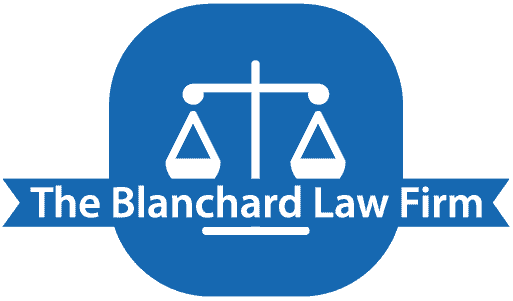
13 Sep How to Plan Your Estate When You Have Minor Children
Estate Planning For The Future
Estate planning is essential for anyone who wants to ensure that their assets are distributed according to their wishes after they pass away. When minor children are involved, the stakes are even higher. Careful planning is crucial not only to protect your financial legacy but also to ensure your children’s well-being and future security.

Start with the Basics: Understanding Estate Planning
At its core, estate planning involves organizing your assets and determining how they will be managed and distributed after your death. This includes creating legal documents such as a will, trust, and power of attorney.
When minor children are involved, your estate plan must go beyond simple asset distribution and address issues like guardianship, financial management, and ensuring your children’s future needs are met.
Here are some of the critical components of a primary estate plan:
- Will: A legal document that specifies how you want your assets distributed after your death.
- Trust: A legal arrangement where a trustee holds assets on behalf of beneficiaries. Trusts can provide for ongoing management of assets for minor children.
- Powers of Attorney: Legal documents granting someone else the authority to make decisions on your behalf if you cannot.
Appointing a Guardian for Your Minor Children
The most crucial detail is who you choose as a guardian for your children. A guardian is someone you trust to take care of your children if both parents pass away or are unable to care for them.
Without a legal guardian designated, the court will decide who takes care of your children, which may not align with your wishes. Many people have someone in mind or a close relative that makes sense. Just remember to think about your children’s whole future, not just convenience at the moment.
Key Considerations in Appointing a Guardian:
- Trustworthiness and values: The person you choose should share similar parenting, education, and lifestyle values.
- Location: Consider whether your children must relocate to live with the guardian.
- Financial stability: While the guardian doesn’t have to be wealthy, they should be financially responsible.
- Willingness to serve: Always discuss the decision with the potential guardian to ensure they are willing to take on this responsibility.
You can name a guardian in your will, and it’s vital to have an alternative or backup guardian in case the first choice is unable or unwilling to serve.
Setting Up a Trust to Manage Your Assets for Your Children
While a will specifies how assets are distributed, a trust allows you to provide more structured financial management, especially for minor children who cannot legally manage their own inheritance. Trusts can help ensure that funds are used responsibly and according to your wishes.
Types of Trusts:
- Revocable Living Trust: This type of trust allows you to retain control of your assets during your lifetime. You can change or revoke the trust at any time. Upon your death, the trust assets bypass probate and go directly to the beneficiaries.
- Irrevocable Trust: This trust cannot be changed or revoked once it’s established. While it offers more asset protection and potential tax benefits, you lose control over the assets placed in the trust.
- Testamentary Trust: Created by your will, this trust goes into effect upon your death and can manage assets for your minor children until they reach a specified age or milestone.
Trusts are beneficial when you have young children because you can specify when and how assets should be distributed.

Choosing a Trustee
A trustee is the person or institution responsible for managing the trust and its assets. This person will have significant control over how your children’s inheritance is distributed, so it’s essential to choose a trustee who is trustworthy and financially competent.
Key Considerations for Choosing a Trustee:
- Financial expertise: The trustee should have a strong understanding of financial management.
- Impartiality: The trustee should be able to make unbiased decisions in the best interest of your children.
- Relationship with your children: While a close family member may understand your wishes, they may find enforcing financial restrictions difficult. Sometimes, a professional trustee, such as a bank or lawyer, might be a better option to ensure objectivity.
Sometimes, you can appoint co-trustees, such as a family member and a financial institution, to balance personal understanding with financial acumen.
Consider Life Insurance to Protect Your Children’s Future
Life insurance is another critical tool in estate planning when you have minor children. It provides financial protection in the event of your untimely death, ensuring that your children have the resources they need for education, housing, and other living expenses.
Types of Life Insurance:
- Term Life Insurance: This is a straightforward option that provides coverage for a specified period, such as 10, 20, or 30 years. If you pass away during this period, the death benefit is paid to your beneficiaries.
- Whole Life Insurance: This policy covers you for your entire lifetime and accumulates cash value that you can borrow against during your life.
The life insurance you need depends on factors such as your children’s ages, anticipated future expenses (such as college), and any debts or financial obligations you want to cover. Speak with a financial advisor to determine the appropriate level of coverage for your situation.
Plan for Disability or Incapacity
Estate planning isn’t just about what happens after your death. It’s also about preparing for the possibility that you become incapacitated and are unable to care for your children.
A comprehensive estate plan should include documents that allow someone to make medical and financial decisions on your behalf if you become disabled or incapacitated.
Essential Documents:
- Durable Power of Attorney: This document allows someone to manage your financial affairs if incapacitated.
- Healthcare Power of Attorney: This document allows someone to make medical decisions on your behalf if you are unable to do so yourself.
- Living Will: A living will outlines your preferences for medical treatment in the event of a severe illness or injury.
These documents ensure that someone you trust can manage your finances and make critical healthcare decisions if you cannot.
Minimizing Estate Taxes
Estate taxes can significantly reduce the amount of money your children inherit. Federal estate taxes apply to estates above a certain threshold (currently over $12.9 million in 2023), but state estate taxes vary. Proper planning can help minimize these taxes.
Strategies to Minimize Estate Taxes:
- Gifting during your lifetime: You can give up to a certain amount each year to your children or other beneficiaries without triggering gift taxes. This reduces the size of your taxable estate.
- Establishing trusts: Certain trusts, such as irrevocable life insurance trusts (ILITs), can help reduce estate taxes by removing life insurance proceeds from your taxable estate.
Consult an estate planning attorney to determine the best strategies for minimizing estate taxes.
Review and Update Your Estate Plan Regularly
Life circumstances change, and so should your estate plan. Review and update your plan regularly, especially after significant life events such as the birth of a child, divorce, remarriage, or changes in financial circumstances. This ensures that your plan reflects your current wishes and circumstances.
Key Life Events that Warrant an Estate Plan Update:
- Birth or adoption of a child
- Marriage or divorce
- Death of a spouse or designated guardian
- Significant changes in assets or liabilities
An estate planning attorney can help you update your documents and ensure that all aspects of your plan are legally sound.
Conclusion
Estate planning for parents of minor children is a critical responsibility that requires thoughtful consideration and attention to detail. By appointing a guardian, establishing a trust, choosing the right trustee, and planning for incapacity, you can protect your children’s future and ensure they are cared for following your wishes.
Regularly reviewing and updating your plan will ensure that it continues to reflect your family’s evolving needs and circumstances.
While it may be an emotional and complex process, effective estate planning will provide peace of mind, knowing that your children will be secure and supported, no matter what the future holds.

Sorry, the comment form is closed at this time.